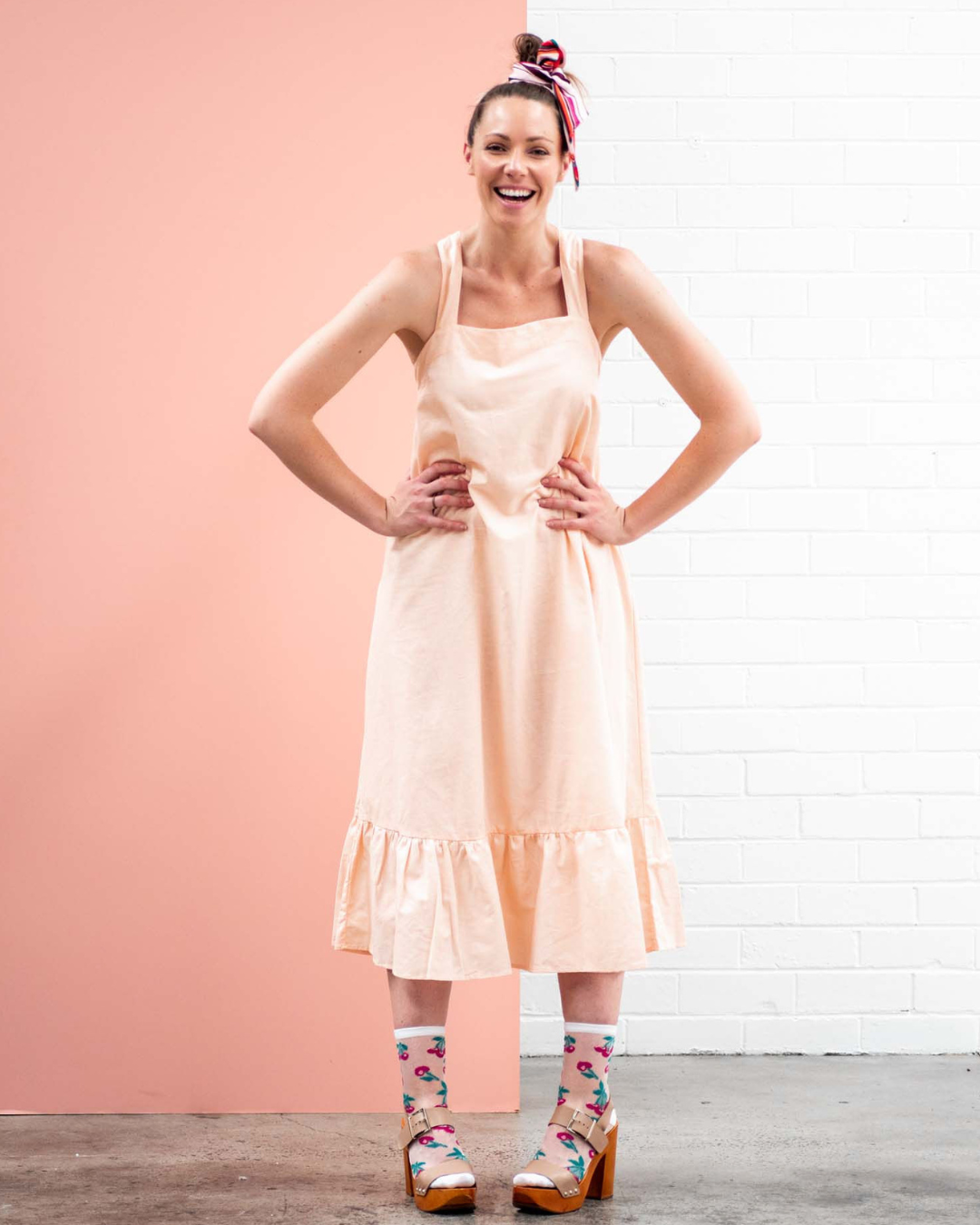I’ll air my dirty laundry early in the piece for you: I used to buy fast fashion. I’ve donned a few weekend one-night wears from Supré. I’ve made a few quick stops at Kmart for essentials. I’ve even succumbed to Zara’s sale rack in the thrill of a bargain hunt. None of us are flawless in fashion – not even fierce ethical fashion advocates like me. I’m embarrassed to admit that my wasteful wardrobe once spanned four bedrooms in one house, but I’m committed to deepening my connection to my clothes, reducing my consumption and improving my shopping habits as I consciously evolve in fashion, outfit by outfit.
As someone who has spent years navigating the intricate world of ethical and sustainable fashion, I’m the first to admit that understanding it all isn’t easy. Fast fashion has been built on centuries-old exploitative practices but it’s not a system we can morally sustain in the modern world. We shy away from the truth of fast fashion because that truth is uncomfortable. Those $10 tees, those $20 dresses, those $30 jeans… They’re made by people (often women and children) who are paid as little as 20 cents an hour in poor working conditions and when it’s happening on the other side of the world, we’re disconnected from it. We treat it like it’s not our problem, but it is.
Taking responsibility for our clothes and understanding ethics in fashion can feel overwhelming. There are so many layers - materials, supply chains, labour practices – and it’s easy to get lost in the complexities, but I have a deep-seated belief that fashion can, and should, be a force for good. If you’re new to your ethical fashion research journey, I’d highly recommend using Ethical Clothing Australia as a reliable resource. As a brand, theirs is the stamp you want to work towards achieving. As a consumer, theirs is the stamp you want to look for when you’re shopping.
For nearly 25 years, Ethical Clothing Australia has been upholding the rights of workers and championing transparency in the local Textile, Clothing and Footwear (TCF) industry through their accreditation program. For a business to become accredited and gain access to the Ethical Clothing Australia trademark, they must be compliant with all aspects of the TCFAI Award and other relevant workplace laws, and they must complete a yearly audit by the Textile, Clothing and Footwear Union. It sounds like a lot, because it needs to be. Clothes aren’t just about the people who wear them, they’re about the people who make them too, and Ethical Clothing Australia exists to protect those people.
In an industry where exploitation can and does happen even here in Australia, Ethical Clothing Australia serves as an ethics guide and an easy starting point for even the freshest of fast fashion converts. Ethical Clothing Australia make it simple to trust that what you’re buying aligns with your values, and their commitment to transparency is admirable in an industry known for its secrets. The Ethical Clothing Australia accreditation system simplifies the guesswork for you and they’re on the ground in the industry, not behind desks in tall towers, so when you see the Ethical Clothing Australia swing tag, you can shop safely knowing your values are prioritised. Every workplace they certify meets stringent ethical standards, ensuring that workers are treated with dignity, paid fairly, and work in safe conditions – the fundamental human rights that so many of us take for granted.
If you’re new to your journey in ethical fashion, don’t shy away from the industry’s secrets or the facts of fashion that feel uncomfortable – the only way is through. You’ll find all the inspiration and education you need through Ethical Clothing Australia, and remember, there may be many ugly truths in fashion, but there are more opportunities for positive change. Every garment counts.
Inspired? Go with it.
Claire x






